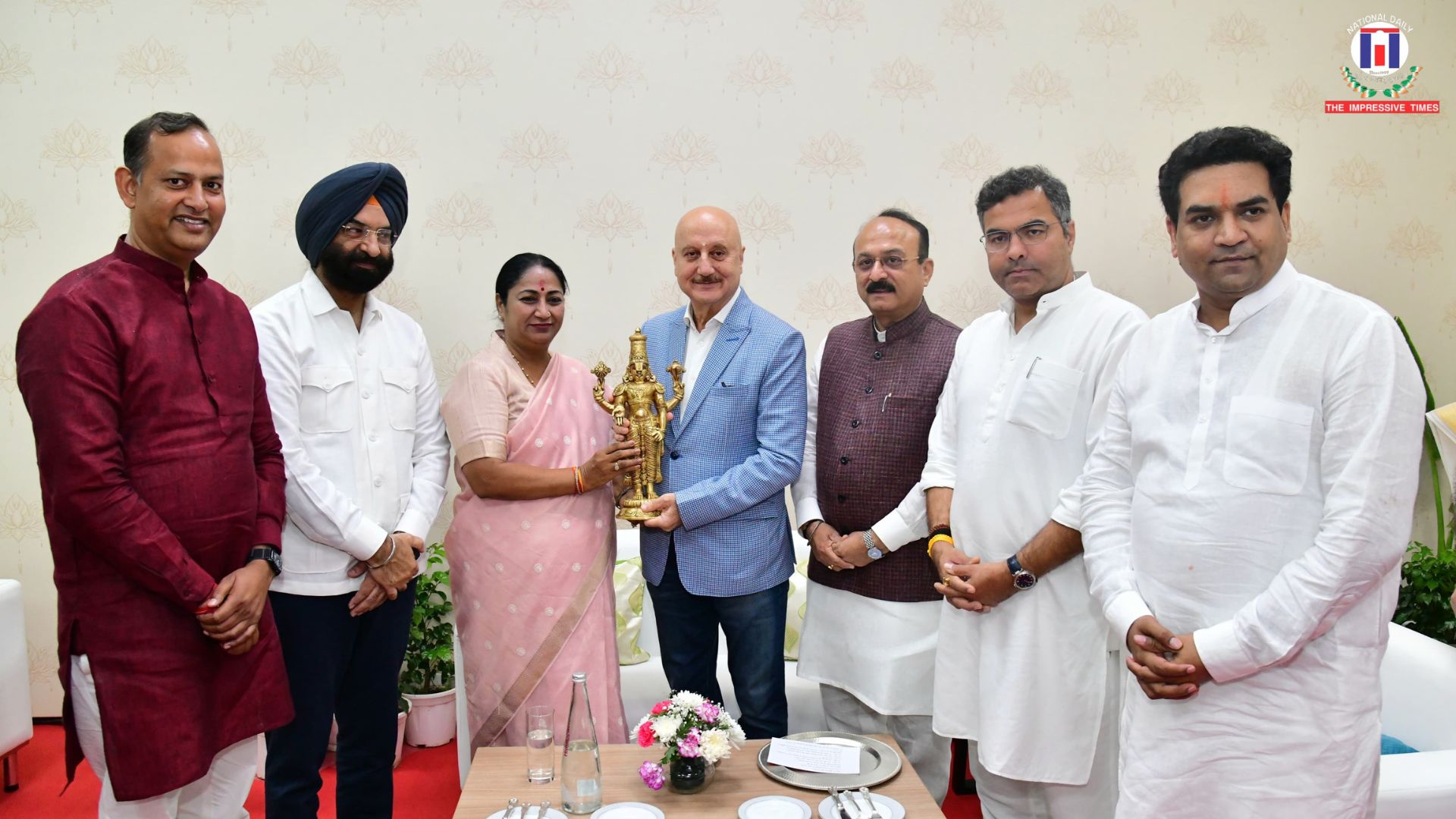
New Delhi, 31 May 2025- To mark 100 days of the Delhi Government’s, an event was held today at Jawaharlal Nehru Stadium. In a special conversation hosted by actor Shri. Anupam Kher, Chief Minister Smt. Rekha Gupta shared the key achievements of her government’s first 100 days. She emphasized that while these initial days may be few in number, the decisions taken during this period have the potential to bring significant and lasting changes to the direction and condition of Delhi. The event was attended by all Cabinet Ministers, Members of Parliament, MLAs, and senior officials.
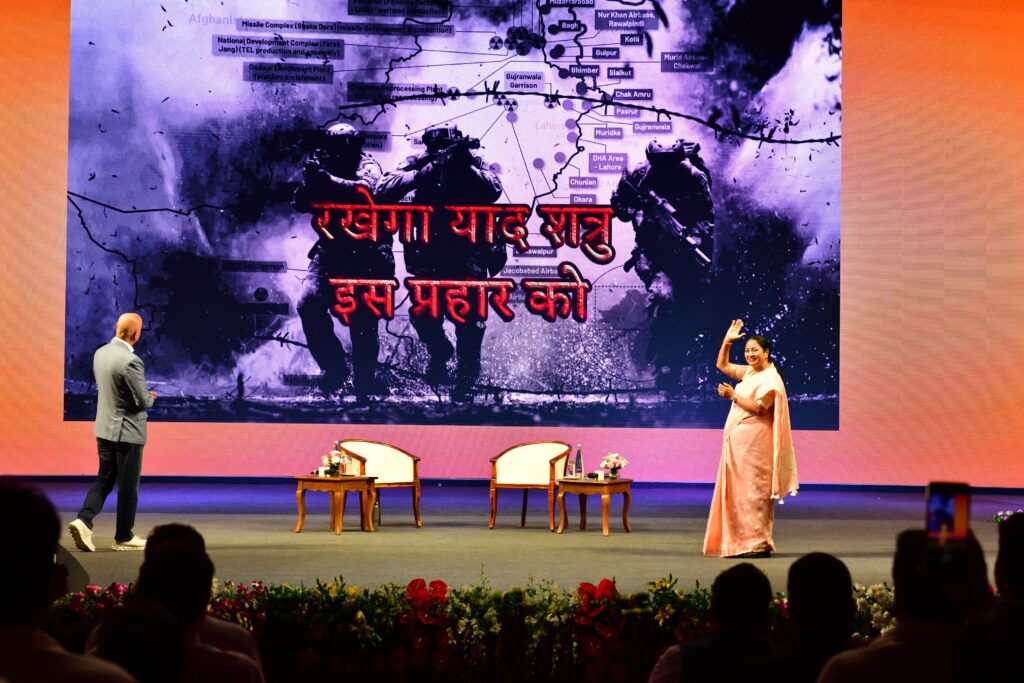
CM Rekha Gupta said that Delhi is a living example of unity in diversity. In honour of this spirit, the government has decided to celebrate the State Day of each Indian state with great enthusiasm and grandeur in Delhi, allowing residents to engage with and appreciate the rich cultural heritage of the nation.
On the Yamuna River, the CM highlighted that the previous government merely put up a show in the name of cleaning the river, while untreated sewage continued to flow into it. In contrast, her government made the rejuvenation of Yamuna a top priority from day one. A ₹9,000 crore provision was made in the Delhi Jal Board budget to strengthen the sewerage system and water supply infrastructure. Also, Seven Sewage Treatment Plants (STPs) in areas such as Narela, Rohini, Najafgarh, and Coronation Pillar have been upgraded, and under the AMRUT 2.0 scheme, ₹804 crore was approved for the rehabilitation of eight more STPs. To intensify efforts, 40 new Decentralized Sewage Treatment Plants (DSTPs) have been launched.
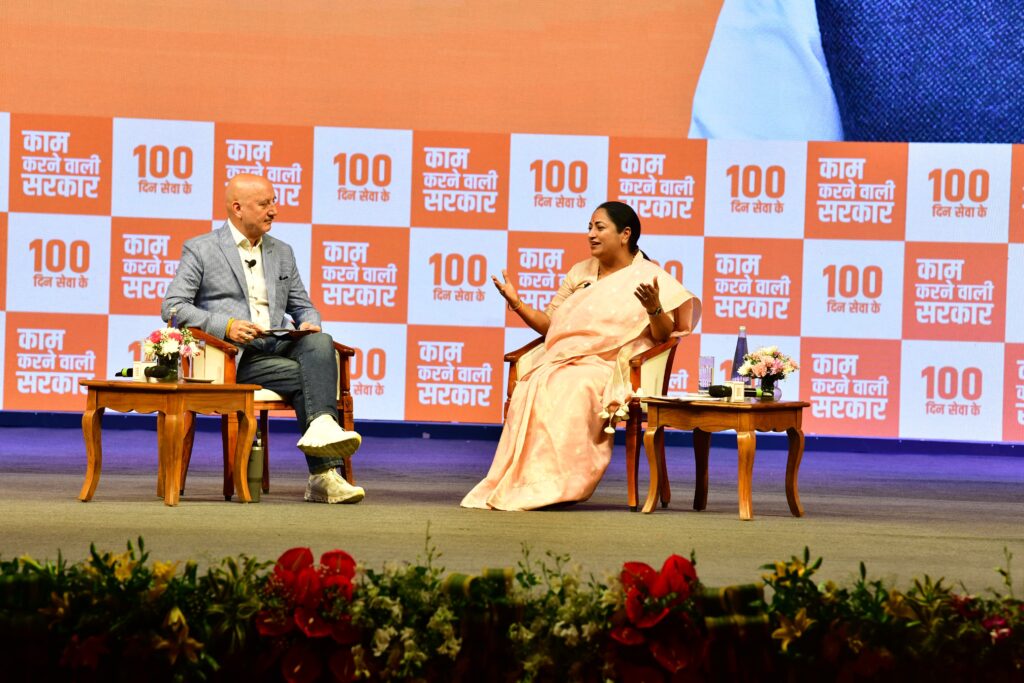
She further said, “In the last 100 days, several lakh metric tons of waste have been removed from drains, and officials have been directed to complete drain cleaning before the monsoon. Sewer and water pipeline work has also been initiated in about 1,700 unauthorized colonies, directly benefiting lakhs of residents. Additionally, a modern command-and-control center has been established, 1,167 GPS-enabled tankers deployed, and the DJB Water Tanker App launched for water supply monitoring. In South Delhi, 70 new tube wells have been installed, directly benefiting nearly 1.5 lakh people.”
CM Rekha Gupta stated that the previous government kept Delhi out of the Ayushman Bharat scheme due to its ego and stubbornness. Her government corrected this in the very first Cabinet meeting by approving the implementation of the Pradhan Mantri Jan Arogya Yojana (PM-JAY) in Delhi, providing up to ₹10 lakh in free treatment for each beneficiary. Additionally, under the “Vay Vandana Yojana,” all citizens above the age of 70 are now entitled to completely free healthcare services. So far, over 3.5 lakh Ayushman cards have been issued, and more than 1.5 lakh senior citizens have benefitted from the scheme. Nearly 80 hospitals have been empanelled, and construction of 1,139 Ayushman Arogya Mandirs is underway. The Ayushman Bharat Digital Mission has also been implemented across hospitals, where Jan Aushadhi Kendras are being set up. Further, advanced healthcare units such as LMU, NAT testing, and a medical genetics ward have been established at Lok Nayak Hospital, ensuring high-quality care.
CM also raised concern over the medical infrastructure and said that over the past 10 years, the previous government merely showcased health reforms without concrete action. The current state is such that there isn’t even one hospital bed per 1,000 people in Delhi. As per WHO standards, there should be at least two hospital beds per 1,000 people. The Delhi government now pledges to ensure the availability of at least three beds per 1,000 people over the coming years.
On education, CM said that the previous government only focused on publicity around the education model but failed to deliver on the ground. In contrast, her government has taken solid and impactful decisions, including the approval of the Delhi School Education (Transparency in Fixation & Regulation of Fees) Bill 2025, aimed at curbing arbitrary practices in private schools. In addition, 125 school libraries have been digitized, and 100 language labs have been established to improve access to quality learning resources. Continuous work is also underway to upgrade infrastructure in government schools to provide a better educational environment.
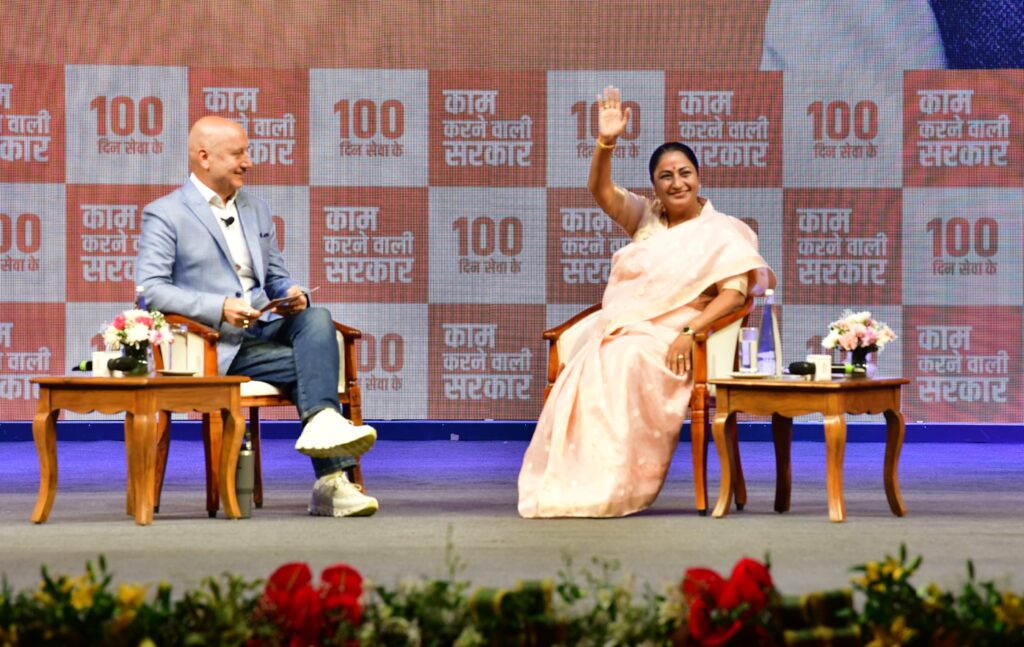
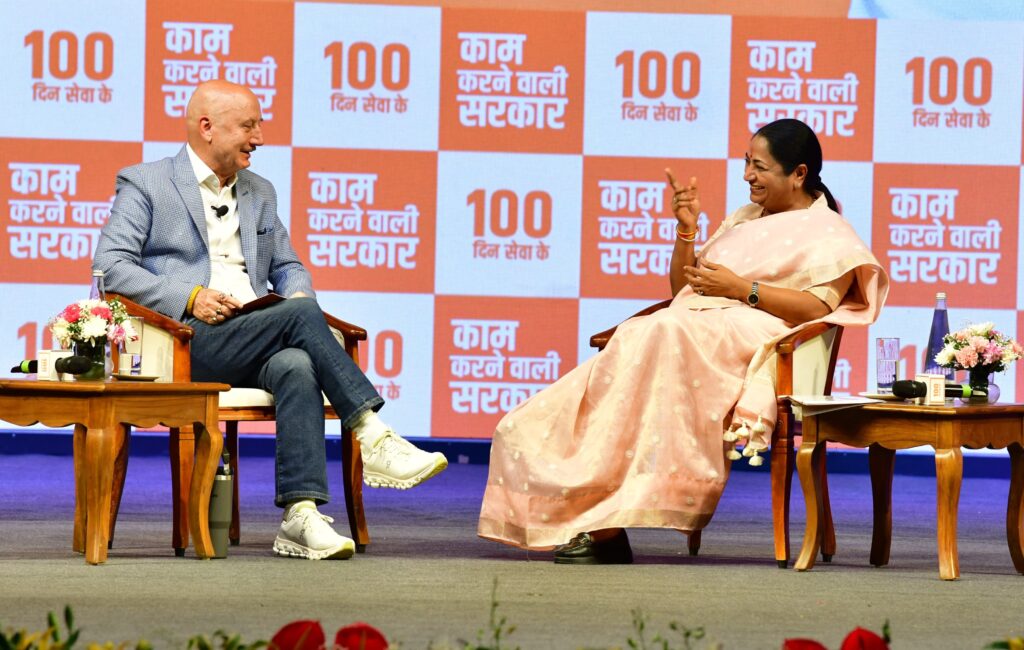
CM said the previous government left behind mountains of waste, turning Delhi into a landfill. However, her government has taken concrete steps to eliminate these legacy waste sites. 24×7 legacy waste processing has been started, with about 30,000 metric tons of garbage being bio mined daily. Waste-to-energy plant installations are progressing swiftly. The target is to completely remove the Bhalaswa and Okhla landfill sites within the next two years. Currently, Delhi has four operational waste-to-energy plants, and two new plants in Narela and Ghazipur are under rapid construction. Expansions of the Okhla and Tehkhand plants are also underway. Moreover, a modern e-waste park is being developed in Holambi Kalan.
On environmental protection, CM Gupta criticized the previous government for turning Delhi into a gas chamber. In contrast, her government has prioritized pollution control by deploying 1,000 sprinklers throughout the year and approving 70 advanced mechanical road sweeping machines. Installation of smog guns in all high-rise buildings has also been made mandatory. Additionally, under the DEVi (Delhi Electric Vehicle Interconnector) initiative, 460 electric buses have been introduced for last-mile connectivity, and 2,000 more electric buses will be added by the end of the year.
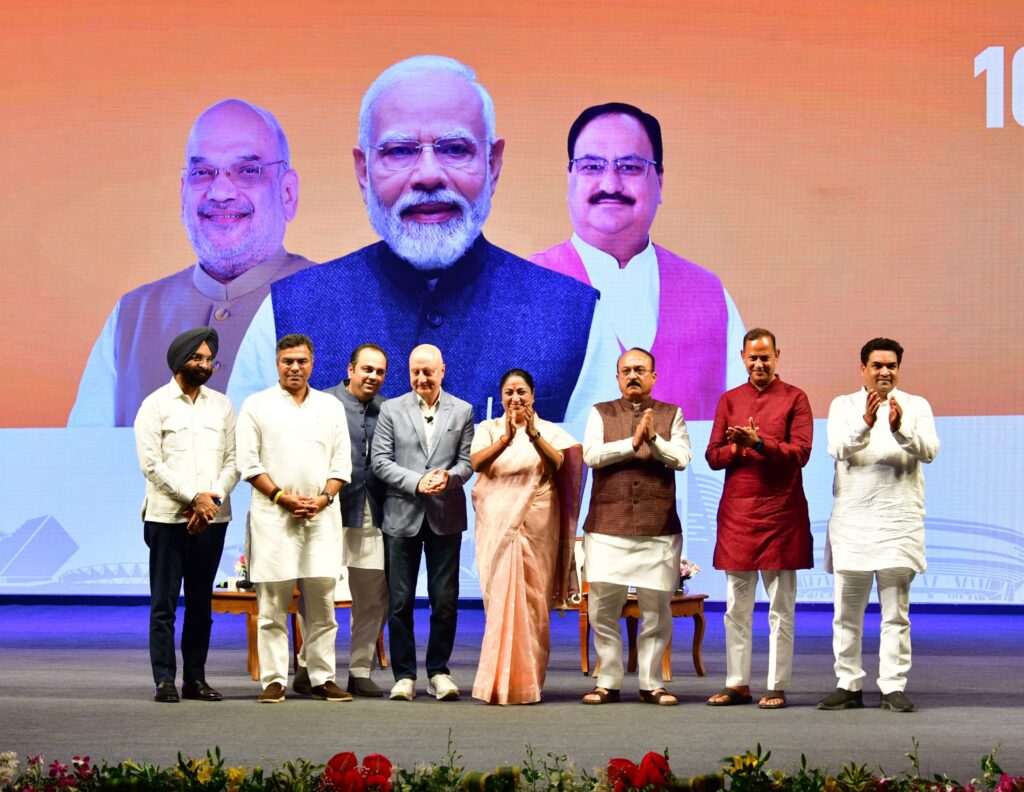
On energy reforms, the CM stated that to encourage solar adoption, the government has made the installation of energy-efficient equipment mandatory in all government buildings. Under the “PM Suryaghar: Muft Bijli Yojana,” an additional subsidy of up to ₹30,000 is being provided. The government aims to install 2.3 lakh rooftop solar panels over the next three years.
Addressing concerns regarding slums, CM Gupta dismissed rumours spread by the opposition regarding slum demolitions. She assured residents that no slum would be removed. Instead, ₹700 crore has been allocated for the development of slum areas. She emphasized that until every slum dweller receives a permanent home, they will continue to live in their current shelters—but with improved facilities and dignity.
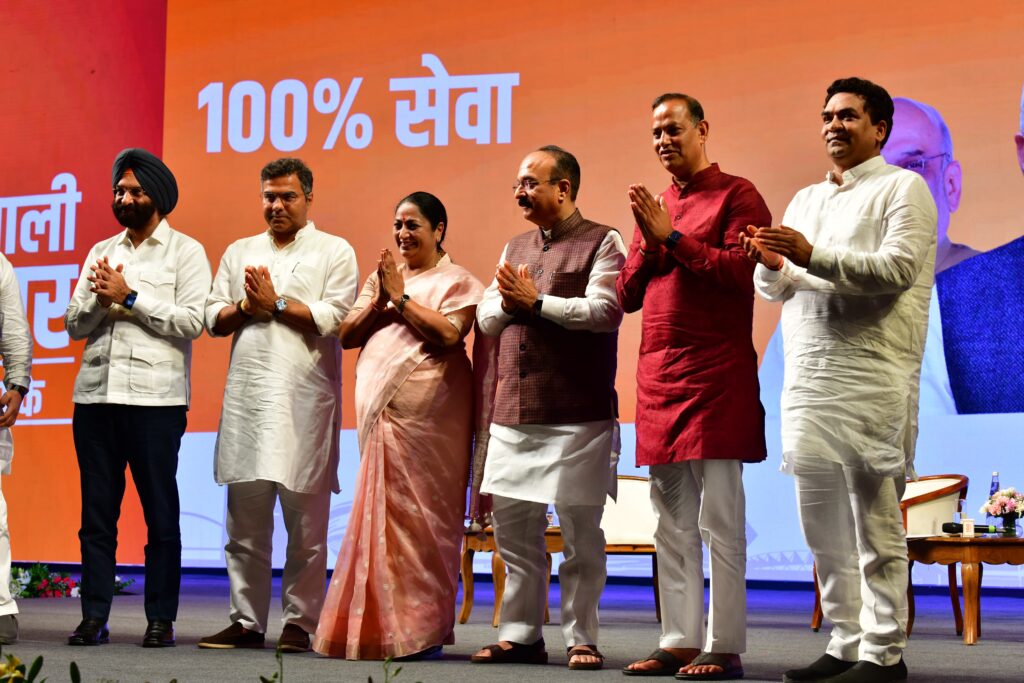
Speaking on women’s empowerment, the CM highlighted the launch of the “Mahila Samriddhi Yojana,” under which financially weak women will receive ₹2,500 monthly assistance. ₹5,100 crore has been allocated for this initiative. The construction of 500 “Palna” day-care centres for the children of women laborers has begun, and the government is committed to strengthening Anganwadi services. Two new “Sakhi Nivas” hostels will also be constructed to provide safe housing for working women. For women’s safety, CCTV cameras are being installed at all key junctions, Women PCR units are operational, and One-Stop Centers are being established in every district of Delhi to provide emergency support to women in distress.
Concluding her address, the Chief Minister sharply criticized previous governments, stating they squandered public money through corruption, while the current government has placed public service at the core of its governance. Taking a dig at her predecessors, she remarked, “They sat in their Sheeshmahal with lavish curtains, tuning into only the news they liked. While they decorated their halls with corruption, we have rebuilt Delhi with honesty.”
She added that these are not just achievements of 100 days, but a reflection of a government that works round-the-clock for the people. “Ours is a 24×7 government, and our next goal is—Viksit Dilli.”















No Comments: